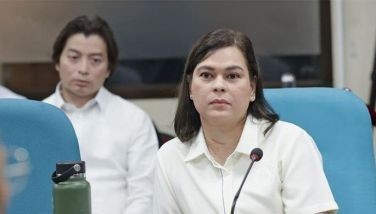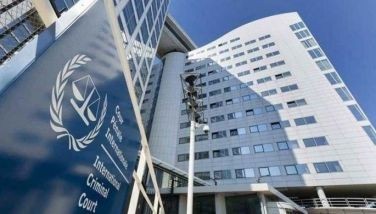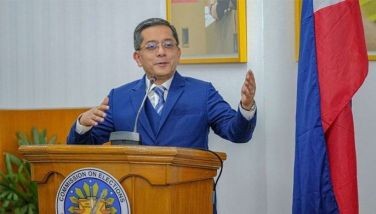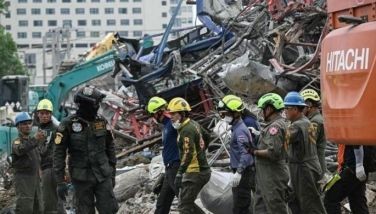US trials watchdog to Philippines: Be ‘cautious’ in trying out ‘Sputnik V’ vaccine
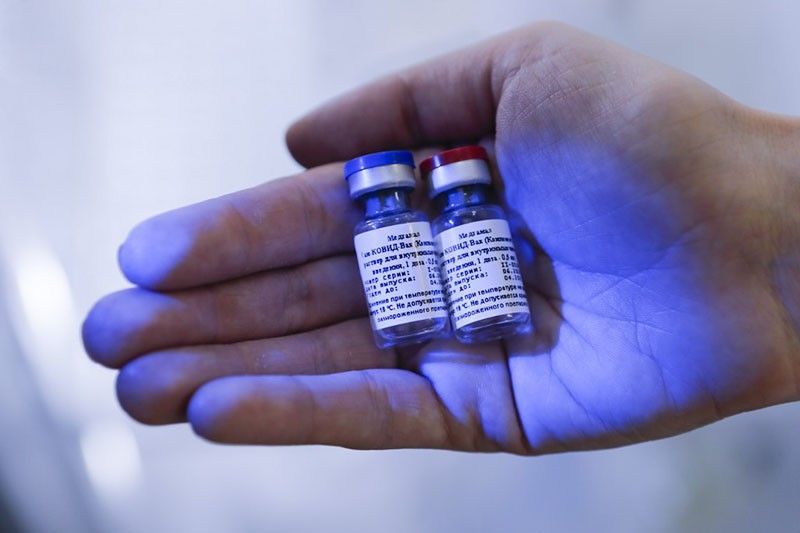
ADELAIDE, Australia (The Filipino Connection) — A non-profit group monitoring worldwide vaccine clinical trials wished the Philippines caution in trying out the “first registered” COVID-19 vaccine that Russian scientists developed, and whose “advanced trials” start today.
The US-based group TrialSite advised the Philippine government to proceed the vaccine on-trial Gam-Covid-Vac “with caution,” after Russian Federation President Vladimir Putin Tuesday announced the registration of the said vaccine.
TrialSite’s message of concern was followed hours later by similar observations from scientists worldwide that the said vaccine got registered by Russian health authorities even if “critical” Phase 3 clinical trials have yet to commence.
Though, developers of the said vaccine are said to start “advanced trials” of Gam-Covid-Vac Lyo Wednesday, its financier the Russian Development Investment Fund (RDIF) announced.
These trials will have “several thousand people” involved, coming from countries such as the United Arab Emirates, Saudi Arabia, the Philippines and possibly Brazil. Meanwhile, RDIF Director General Kirill Dimitriyev said Tuesday Russia accepted preliminary applications to receive a billion doses of the vaccine from 20 countries.
Days before Putin announced the effectiveness and stability of Gam-Covid-Vac Lyo Tuesday, Russian government and diplomatic authorities have announced in broad strokes the Philippines will be supplied these experimental vaccines.
Philippine President Rodrigo Duterte thanked Russia for the gesture, as Russian Ambassador to Manila Igor Khovaev told Filipino reporters online last August 7 Russia is offering “safe and effective” vaccines for COVID-19 to the Philippines.
“Yes there are implications for the Philippines,” TrialSite told The Filipino Connection Tuesday after Putin’s announcement of the vaccine’s registration, and his naming of the vaccine as “Sputnik V” (named after the world’s first artificial satellite).
TrialSite’s concern with Sputnik V is that “there was no Phase 3 trial (prior to registering the drug) and that in some way, the Philippines decided that the Phase 3 trial is to be done there.”
Even if some rich people in Russia, including Putin’s daughter, had tried Sputnik V, TrialSite fairly said “perhaps (Sputnik V) works and it is fine.” But the Utah-headquartered group emphasized the “critical importance” of Phase 3 trials.
Phase 3 trials of vaccines to thousands of people are the final stage to determine the effectiveness of a vaccine. These trials usually involve tens of thousands of people (with some to be placed in therapy) and may take months to complete.
After scientists have noticed the efficacy and stability of the said vaccine or drug during Phase 3, a country’s drug authority approves the said vaccine for registration, production and distribution.
“Russia skipped that entire step,” TrialSite told The Filipino Connection. “This introduces risk and hence why we suggest caution to the Philippines, a country we care about.”
(TrialSite told The Filipino Connection one of its unidentified founders has “a lot of friends that grew up in the Philippines.” The group is founded by “a team of experts in the clinical trials industry, and is dedicated to transparency, quality and clinical trials innovation”.)
TrialSite reports Phase 1 trials of Sputnik V happened last June and Phase 2 “purportedly happened” last month.
Hours after Putin’s announcement, TrialSite published an article on its website saying the vaccine’s developers “would likely skip a pivotal Phase 3 trial and rather (inoculate) people and treat that like a Phase 4 post-marketing study.”
As the group suspects the Russians “have undertaken considerable human challenge trials” and generating significant data along the way, “the ethics and morals of all of these is another matter.”
Samples
The N. F. Gamaleya National Research Institute of Epidemiology and Microbiology and pharmaceutical firm Binnopharm developed the vaccine from Moscow. This vaccine is given in two doses, and consists of two adenoviruses: Ad26 and Ad5.
The renowned science magazine Nature reported Tuesday the Ad26 virus is similar to the strain in the experimental vaccine being developed by Johnson & Johnson and subsidiary company Janssen. The Ad5 strain, for its part, is the same as the strain being developed by Chinese pharmaceutical firm CanSino Biologics. Half of the vaccine was injected in liquid form, and the other half in soluble powder.
Trials of Gam-Covid-Vac had 76 volunteers, with the Associated Press reporting that half of those volunteers were from the military. The New York Times reported Russia combined Phase 1 and 2 clinical trials, of which Putin’s daughter said to have participated.
“(The vaccine) forms a stable immunity, I repeat: It has passed all the necessary tests,” Russian Health Minister Mihkail Murashko said Tuesday. “All the volunteers developed high tiers of antibodies to COVID-19. At the same time, none of them had serious complications of immunization.”
Even Russian scientists trialing the vaccine tested it on themselves prior to the Phase 1 and 2 trial, revealed Gamaleya Institute Director Alexander Gintsburg.
The Russian Development Investment Fund (RDIF) was said to have bankrolled the clinical trials and may work with the Russian drugmaker R-Pharm “to produce the first Russian vaccine with high export potential.”
TrialSite reported on August 8 plans for RDIF and R-Pharm to produce 30 million doses in Russia and 200 million doses globally “should tests conclude successfully in 2020.”
The roll out of the said vaccine was said to be a promise by government authorities and by vaccine developers last May.
Safety
As early as August 1, until Tuesday hours after announcing the launch of Sputnik V, scientists worldwide as well as officials from the World Health Organization (WHO) reminded the importance of vaccines’ safety.
The Russian Association of Clinical Research Organizations emphasized last August 10 “the high risks of drug registration before the end of phase III (where) the main evidence of efficacy is obtained, as well as information is collected on the adverse reactions that the drug can cause in certain groups of patients.”
“We completely understand the desire of both the developers and the regulator to fulfill the promise made in May. But there is no reason to accelerate the development,” Russian ACRO said. “Accelerated registration will no longer make Russia a leader in this race (to launch the first COVID-19 vaccine). It will only expose end-users of the vaccine, citizens of the Russian Federation to unnecessary danger.”
The WHO echoed Russian ACRO’s statement. Spokesman Tarik Jasarevic said Tuesday from WHO’s headquarters that national regulatory bodies have to ready themselves in reviewing the safety and efficacy of Sputnik V if “absolutely essential clinical trial data” are available.
“We need to continue to invest in, and accelerate development of, safe and effective treatments and vaccines that will help us reduce disease transmission in the future,” Jasarevic added.
As of this day, three vaccines are now on Phase 3 or combined Phase 2-3 trials: “CoronaVac” by Sinovac Research and Development Company Ltd. (China); “m-RNA1273” by Kaiser Permanente and the Washington Health Research Institute; “Bacillus Calmette-Guerin (BCG)” by a consortium led by the University of Melbourne (Australia); “AZD1222” by the University of Oxford (United Kingdom) and AstraZeneca; “BNT162” by Pfizer and BioNTech; and “Ad5” by the CanSino Biologics and SinoPharm from China.
Duterte thanked his counterpart Putin for the latter’s gesture that the Philippines be among the recipients of Sputnik V through trials. No details of the planned usage of Sputnik V are available as of press time.
Russia currently has a COVID-19 caseload of 897,599 (including 15,131 deaths). The COVID-19 caseload of the Philippines (139,538, with 2,312 deaths) is some 6.43 times less than Russia’s.
The Filipino Connection is a regional partner of Philstar.com.
- Latest
- Trending




















